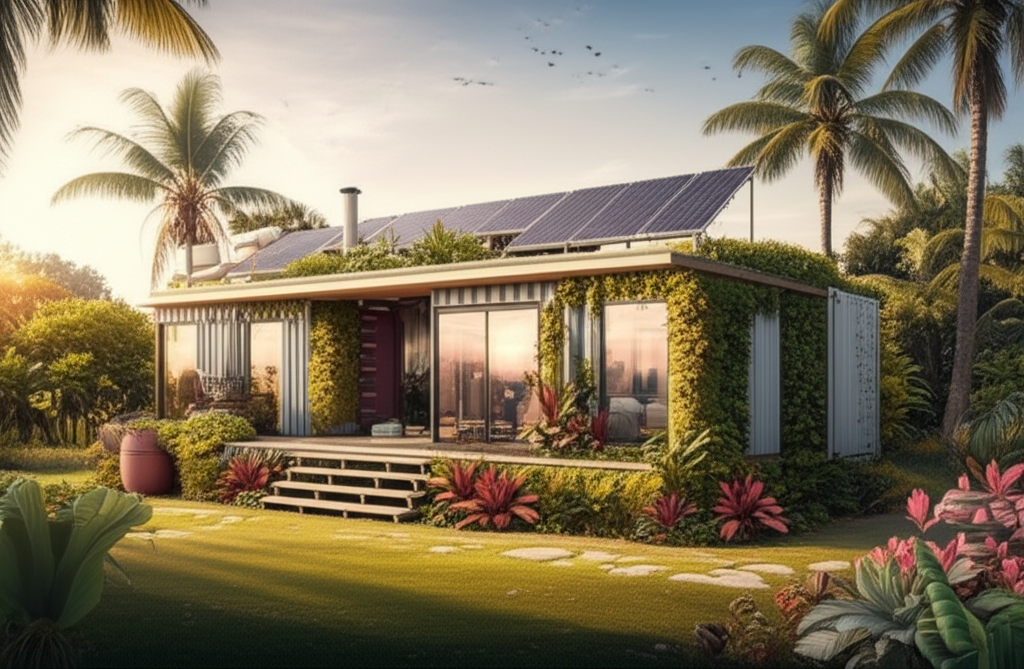
EarthNest MycoDome
A revolutionary sustainable living solution designed specifically for Florida's unique climate and environment.
Concept Overview
Structural Innovation
A fusion of recycled shipping containers for durability and modularity, with earth berming for enhanced insulation and landscape integration.
The mushroom-inspired design emulates the aerodynamic and efficient form of fungi for natural airflow and aesthetic appeal.
Mycelium Materials
Incorporating mycelium-based materials for insulation, fire resistance, and sustainability, grown from agricultural waste.
Green roofing with native Florida plants for temperature regulation, stormwater management, and creating wildlife habitat.
Off-Grid Systems
Implementing solar panels to harness Florida's abundant sunshine for clean, renewable energy.
Rainwater harvesting systems, greywater recycling, and composting toilets for water conservation and self-sufficiency.
Design and Construction
Structural Elements
- Shipping Containers: Offer a robust and modular framework, ideal for withstanding Florida's hurricane-prone climate.
- Earth Berming: Enhances thermal insulation and integrates the home with the natural landscape.
- Mushroom-Inspired Architecture: Promotes efficient airflow and unique aesthetics.
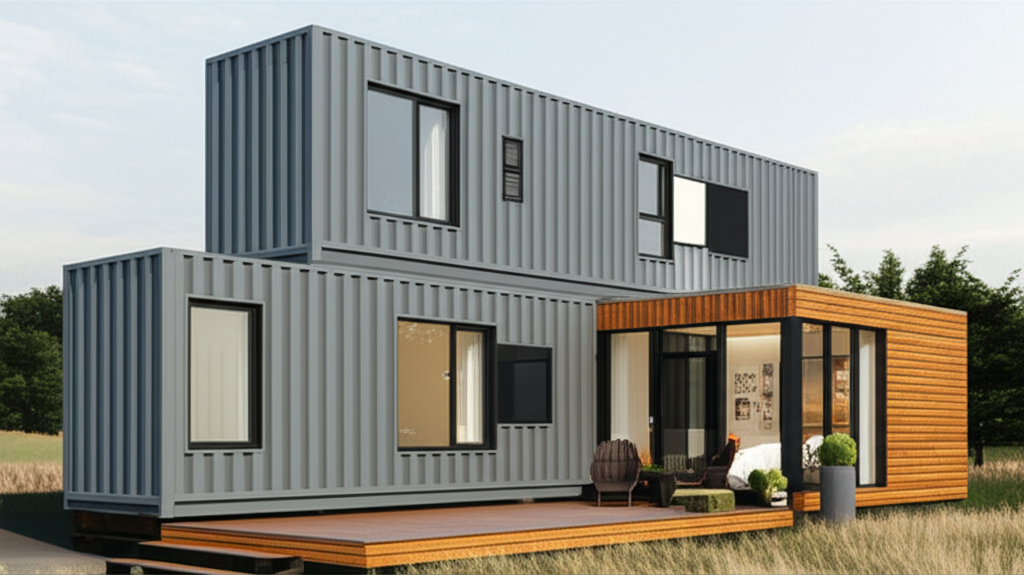
Mycelium-Based Materials
- Insulation: Mycelium provides excellent thermal and acoustic insulation.
- Fire Resistance: Naturally fire-retardant, enhancing safety.
- Sustainability: Biodegradable and grown from agricultural waste.
- Local Supplier: Mushrooms Inc. in Estero, FL, offers mycelium-based construction materials.
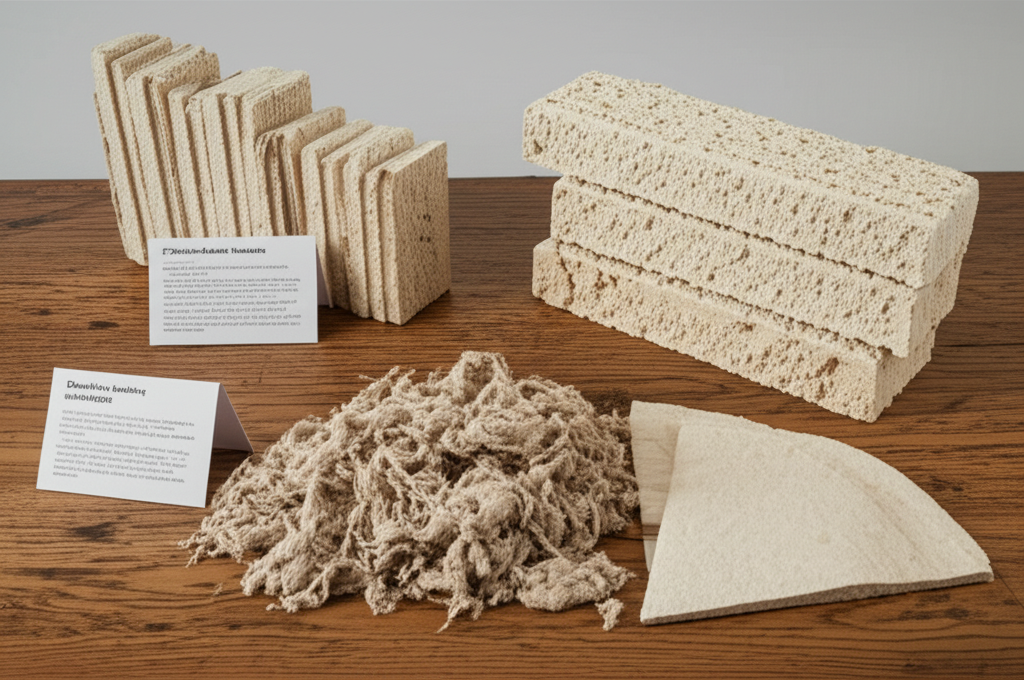
Green Roofing
Benefits:
- Reduces heat absorption
- Manages stormwater runoff
- Provides habitat for local wildlife
Plant Selection: Use native Florida plants for low maintenance and ecological harmony.
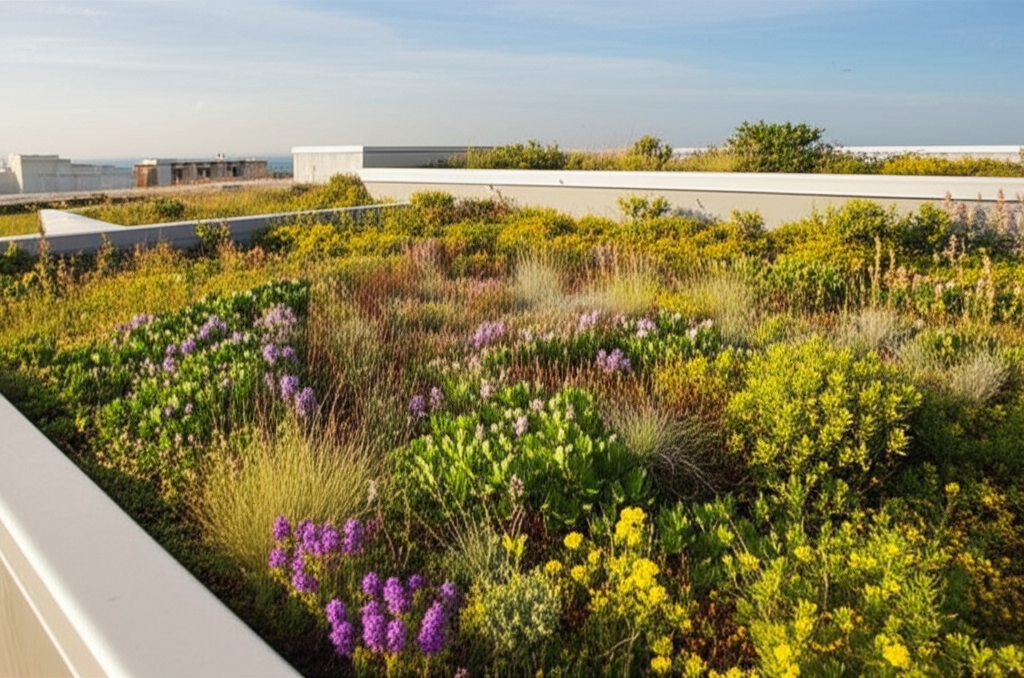
Legal Requirements in Florida
- Tiny Homes on Foundations: In Florida, tiny homes built on foundations are generally treated as Accessory Dwelling Units (ADUs) and must comply with local zoning ordinances.
- Tiny Homes on Wheels: Often classified as Recreational Vehicles (RVs), these require compliance with RV standards and may face restrictions in residential zones.
- County-Specific Regulations:
- Orange County: Allows tiny homes as ADUs with a maximum size of 400 sq ft.
- Seminole County: Cities like Longwood, Oviedo, and Casselberry are tiny home-friendly.
- Florida Building Code: Defines tiny homes as dwellings under 400 sq ft, excluding lofts.
- Appendix Q: Provides specific provisions for tiny houses, including reduced ceiling heights and loft requirements.
- Hurricane Resistance: Florida has strict requirements for wind resistance, especially important for the MycoDome's unique design.
Sustainable Utilities
Solar Energy
Installation Process:
- Site Assessment: Evaluate sunlight exposure and roof orientation.
- System Design: Tailor the system to energy needs.
- Permitting: Obtain necessary local permits.
- Installation: Professional setup and grid connection.
Costs and Incentives:
- Average Cost: Approximately $2.11 per watt.
- Federal Tax Credit: 30% of system cost.
- Sales Tax Exemption: No sales tax on solar equipment in Florida.
- Property Tax Exemption: Added home value from solar installations is exempt from property taxes.
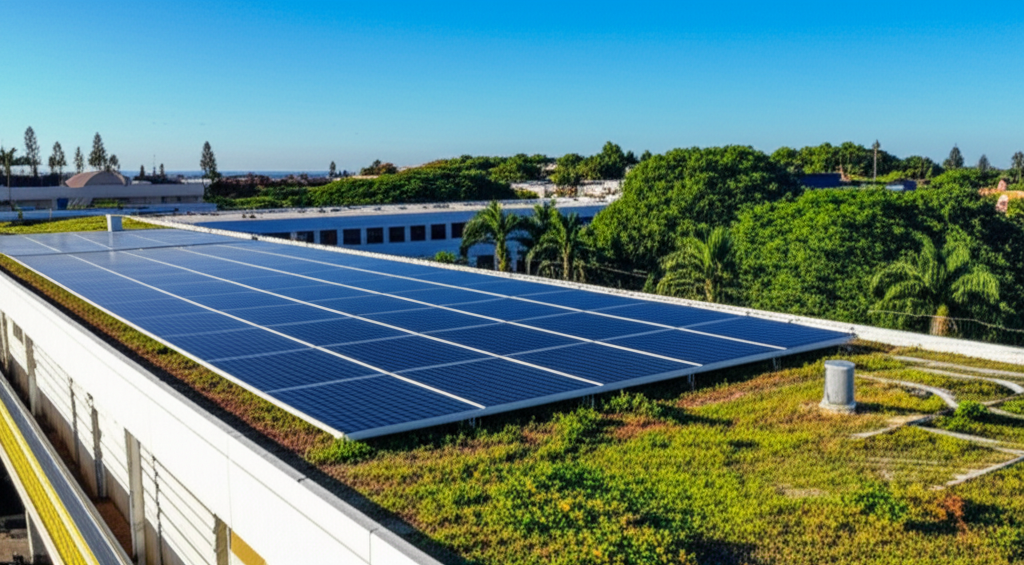
Water Management
- Rainwater Harvesting: Collect and store rainwater for non-potable uses. Florida's abundant rainfall makes this particularly effective.
- Greywater Systems: Recycle water from sinks and showers for irrigation, reducing water consumption by up to 30%.
- Composting Toilets: Eco-friendly waste management solution, reducing water usage and creating valuable compost.
- Florida-Specific Considerations: Systems designed to handle heavy rainfall events and high humidity levels.
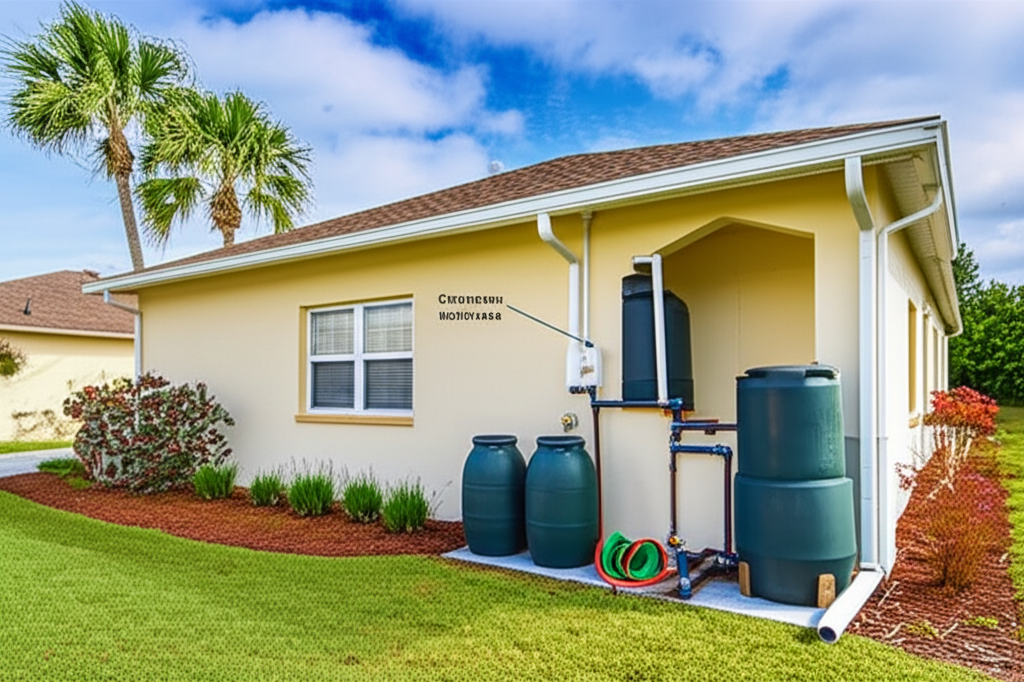
Financing Options
- FHA and USDA Loans: May be applicable for certain properties.
- Green Loans: Offered by local banks for sustainable projects.
- Florida Housing Finance Corporation: Provides information on available grants and assistance programs.
- Energy Efficiency Rebates: Available through utility companies for sustainable building practices.
Community and Lifestyle
Explore communities like Orlando Lakefront for shared resources and support. These communities offer:
- Shared knowledge and expertise
- Community gardens and resources
- Support for sustainable living practices
Join sustainability-focused groups via platforms like Meetup or Facebook to connect with like-minded individuals.
Resources and Contacts
- Suncoast Building Materials – Offers eco-friendly building materials in Central Florida.
- Mushrooms Inc. – Specializes in mycelium-based construction materials in Estero, FL.
- Cornerstone Tiny Homes – Specializes in custom tiny homes.
- EarthNest Builders – Our in-house construction team specializing in sustainable building practices.
- Phil Kean Design Group – Offers sustainable architectural designs.
- EarthNest Design Team – Our specialized architects with expertise in mycelium-based construction.
Ready to Begin Your MycoDome Journey?
Contact us today to learn more about how the EarthNest MycoDome can provide you with a sustainable, efficient, and harmonious living space tailored for Florida's unique environment.